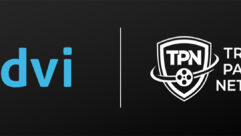TRUTH IN PUBLISHING
Jun 1, 2001 12:00 PM,
Nathaniel Hecht, editor
“Truth is a delicate flower. It needs light, nourishment and protection to stay alive.” — Sanford D. Hecht, M.D.
WHEN I WAS A KID, MY DAD SHARED THIS WISDOM FROM TIME TO time. Being a kid, I didn’t quite get what he meant, but after some observation and growing up, it became clear. Some people would have you believe everything they say, often with sinister goals and potentially damaging results. Take the tabloid press as an example. I think we all know that Pee-Wee Herman’s face was not really found on Mars. Should we forgive the author (and editor) for these headlines due to the obvious entertainment value, or should we be angry? Although these headlines are obviously contrived, there are other more adverse and subtle forms of information manipulation at work in the press. In many cases, the truth is in the hands of people who may not even be aware when they are screwing it up: They simply follow the path of least resistance.
Three of the big problems with the technical press in our small industry are the lack of peer review, the availability of suspect data, and the tendency to ask important questions of the wrong people. We sometimes even base business decisions on bad data. The trade press has an obligation to deliver accurate, honest information. Research takes time, effort, money and dedication to excellence.
Take for example the misuse of online information. I know that certain articles on certain Web sites have no merit, because before being posted, they came across my desk and did not stand up under the scrutiny of peer review. The authors are partly to blame for the articles’ publication. But it is the editor’s responsibility to verify the validity of each article. Of course, no editor knows everything. Take a look at the masthead of S&VC: You will see a substantial list of contributing editors and technical consultants. These people are experts in their fields, serving as the brain trust for S&VC. When there is a question of validity on specific issues, we consult them.
Misuse of information in the trade press is often displayed by the choice an author or editor makes in who is asked to pontificate as an expert on a topic. You can usually guess what their ideas will be based on their job title or whether their company is public or private. Anyone who bases business decisions on this kind of information is playing Russian roulette, since forward-looking statements by these individuals are pure speculation. Have you ever seen careful research and statistics quoted in these articles? At best, the statements are cryptic messages aimed at others in the manufacturing business, not hard truth to base your strategies upon. Phone-survey response percentages in the single digits are not statistically relevant. Fancy pie charts and slick presentation do not make data any more relevant. Surveys must be carefully controlled, not haphazardly applied. They require training and the direction of professionals. Before you change your business plans based on this kind of data, ask how it was obtained and by whom. As the editor of S&VC, I have always sought to provide statistically significant data. We take our responsibility seriously and will continue to provide the most accurate information we can get. S&VC is your partner as our industry grows, and we value your trust in us.










